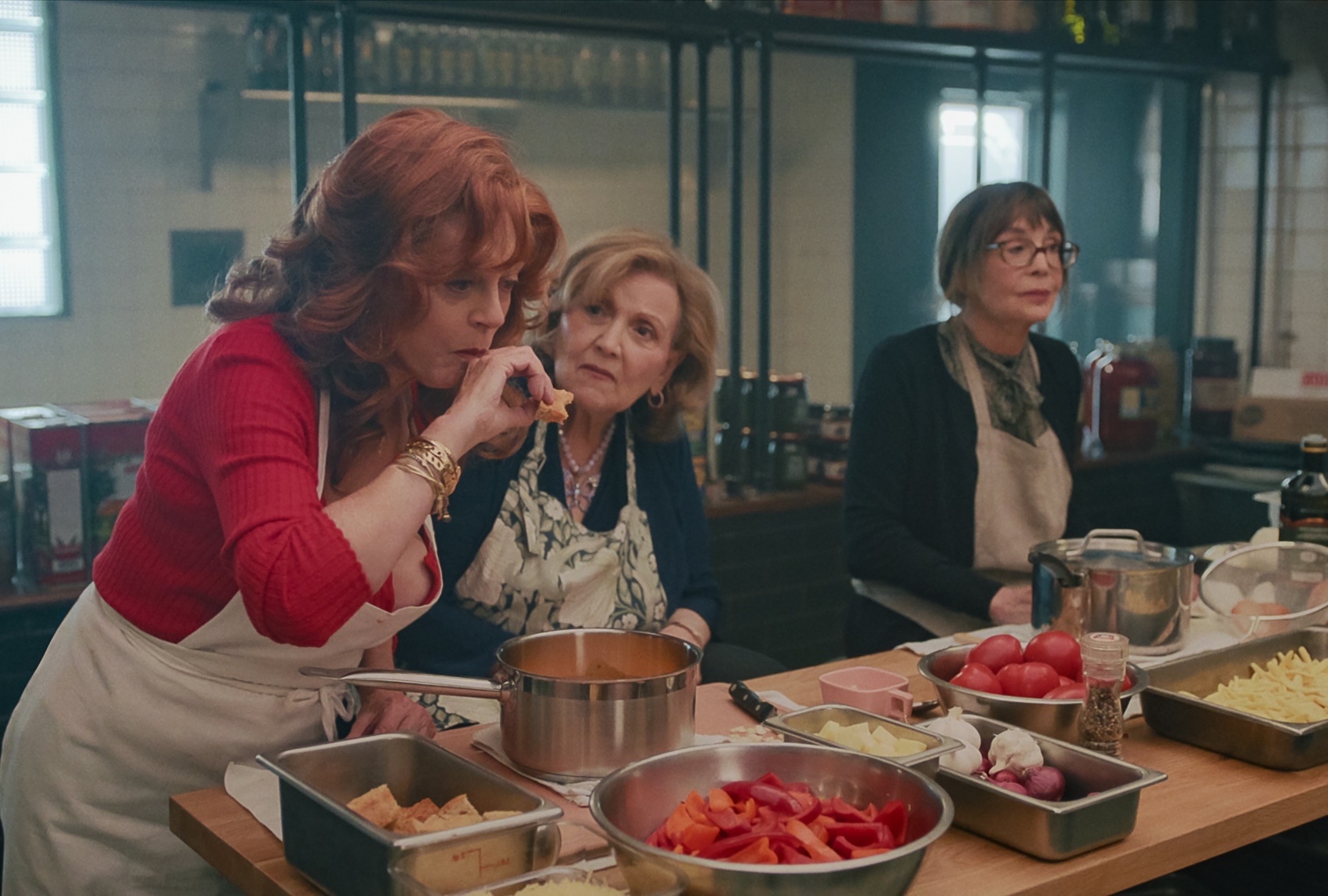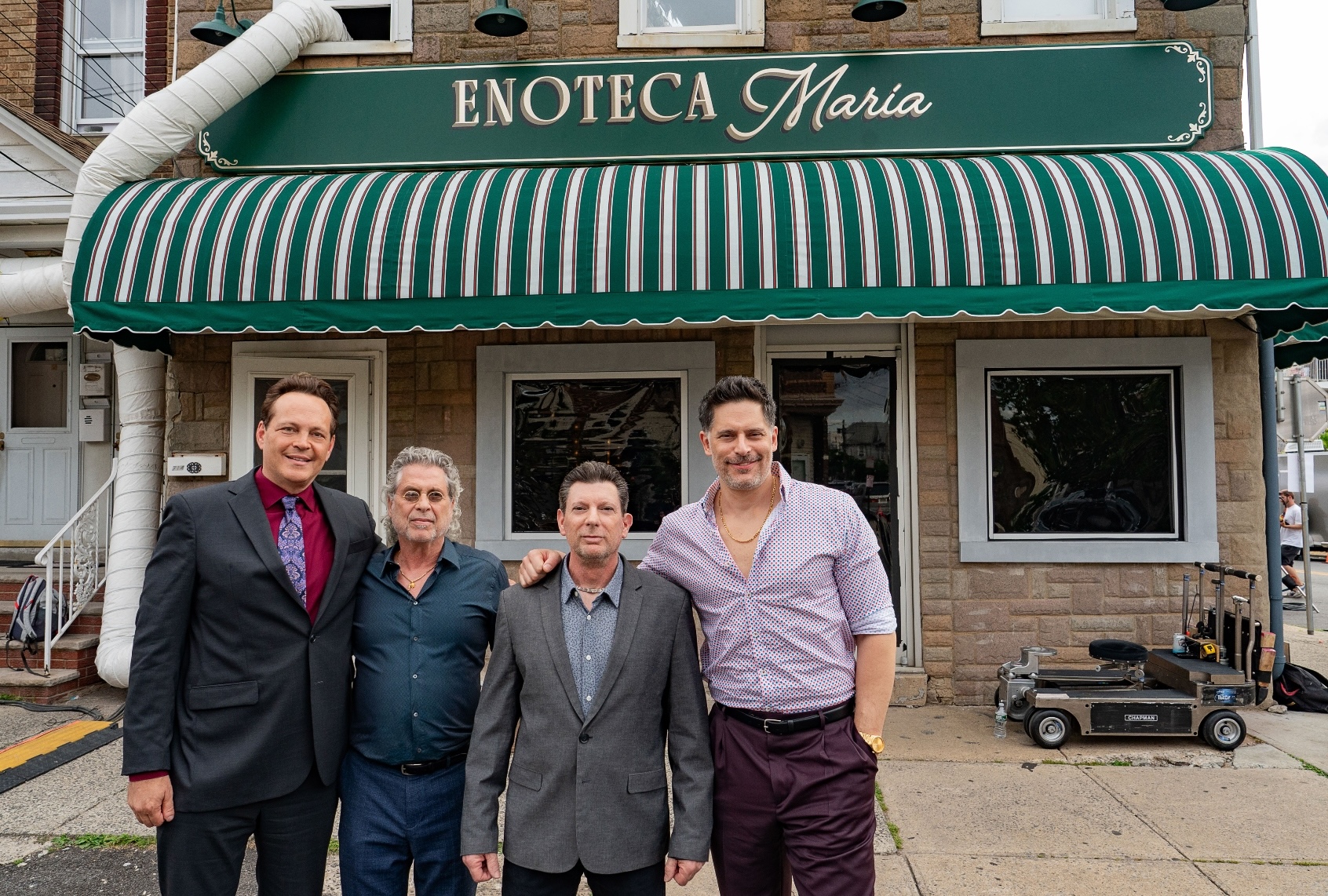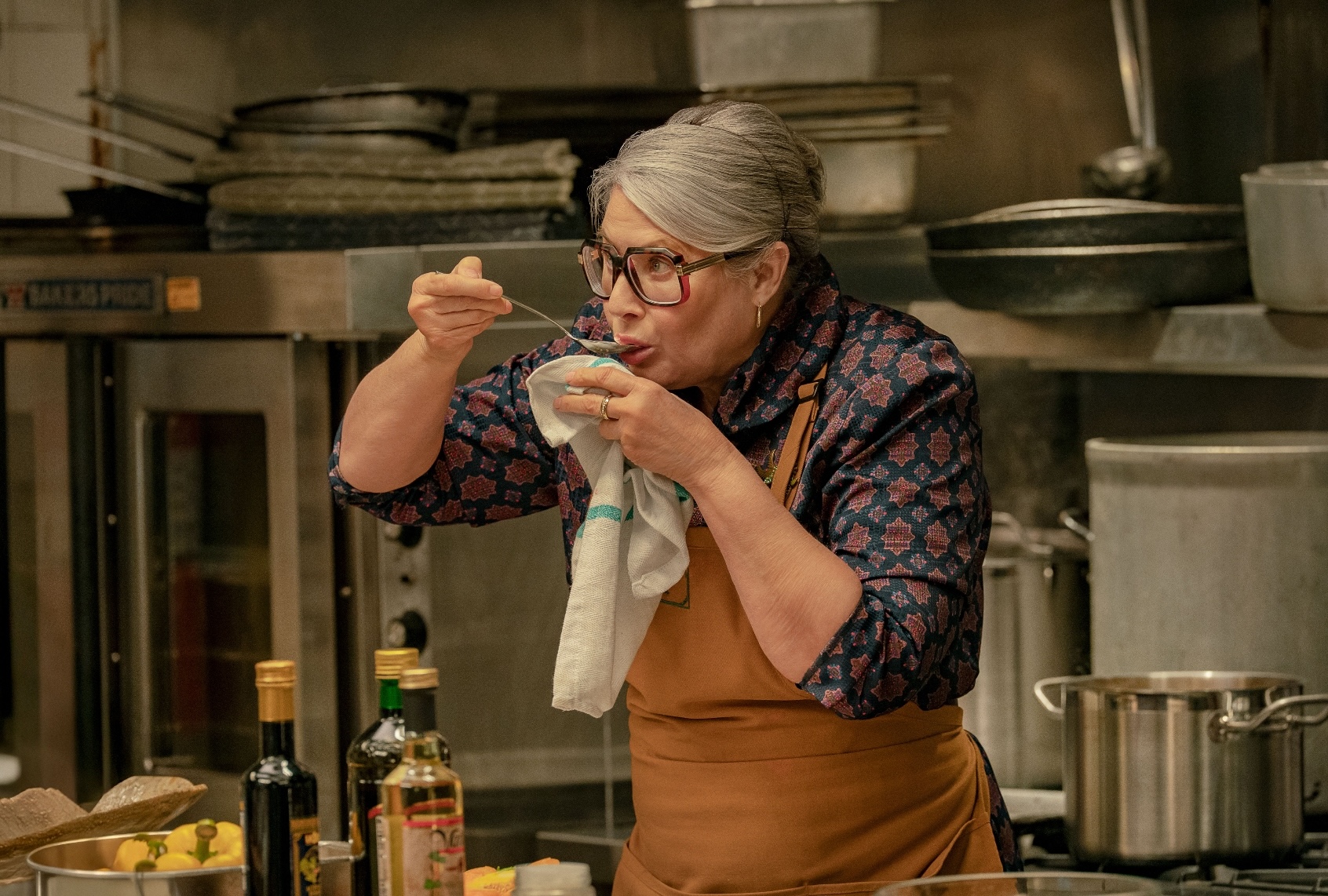“My grandmother used to make that, and I was terrorized as a young child sitting at the table, seeing this big head—these big black eyes staring at me. It’s not something that you ever forget.”
That’s Jody “Joe” Scaravella describing capuzzelle di agnello, a traditional sheep’s head dish, during a video interview. Scaravella is the owner of Enoteca Maria, the real-life Staten Island restaurant that inspired the new Netflix comedy “Nonnas,” released last week.
In “Nonnas,” Vince Vaughn stars as a fictionalized Scaravella, who opens a restaurant that centers the food and lives of matriarchs. These women, often overlooked, are the kind of unsung culinary heroes who raised families with grit and grace, transforming humble ingredients into nourishing meals. In the film, a crew of Italian nonnas — played by Lorraine Bracco, Susan Sarandon, Talia Shire and Brenda Vaccaro — step into the kitchen, just like the real-life grandmothers who cook at Enoteca Maria every weekend.
One of the film’s funniest scenes features Roberta (Bracco) preparing capuzzelle, much to the horror of her fellow cooks. The enormous sheep’s head stuns the kitchen, sparking gags due to its smell and sheer presence. But Roberta anchors the moment with something deeper: “Capuzzelle is my identity,” she says. Her mother, raised in a poor Italian village, believed fiercely in using the whole animal —nothing wasted. The dish is rooted in cucina povera, or “poor kitchen,” a tradition of resourceful, heart-forward cooking that stretches across Italy.
Often cooked with breadcrumbs, garlic, herbs and wine, capuzzelle was (and is) a staple in many Italian and Italian-American homes. Scaravella says it’s still one of the restaurant’s most popular dishes. Why? Sometimes, he suspects, it’s the novelty. But more often, it’s something else.
 Susan Sarandon as Gia, Brenda Vaccaro as Antonella and Talia Shire as Teresa in "Nonnas" (Netflix)
Susan Sarandon as Gia, Brenda Vaccaro as Antonella and Talia Shire as Teresa in "Nonnas" (Netflix)
“One day, a young guy came in and ordered it. He was sitting by himself,” Scaravella recalls. “I asked him why, and he said, ‘My dad used to love this. I just lost him. I wanted to get to know him better through the things he loved.’ And that’s magic.”
At Enoteca Maria, food becomes a form of reverence. For those grieving, eating a beloved dish can become a bridge to memory. A spoonful, a smell — it can be enough to bring someone back to you, if only for a moment.
Scaravella sees that magic at play every day. Capuzzelle, in particular, carries layers of meaning: respect for the animal, gratitude for survival and love made visible. “It’s a poverty-driven dish from Southern Italy,” he explains. “Sometimes, people just didn't have enough money to buy a good cut of meat. So these throwaways were all offal that you were able to get for pennies and then feed your family.”
He’s drawn to dishes like this, born from necessity and made from the heart. So many cultures “all use the same animals,” he says, “but just prepare them with different spices.”
We need your help to stay independent
That deep, connective power is central to both “Nonnas” and Enoteca Maria. “These ladies are the fabric that holds society together,” Scaravella says. “They pass culture forward. When my grandmother passed away, my family fractured in some way, because every Sunday, we would get together and celebrate. So now this person is gone and somebody else in the family has to pick up that torch and carry it. And it's not an easy lift.”
Scaravella founded the restaurant in grief, but it quickly became something bigger. He published a cookbook. He launched “Nonnas in Training,” a series of cooking classes taught by grandmothers from around the world.
They started with Italian grandmothers, but Scarvella soon realized it was about all matriarchs, whom he refers to as the “original couriers” of a culture’s cuisine. Now, each weekend, the restaurant features two new guest chefs: one recent pairing brought Oxana from Ukraine, who made potato dumplings and beef goulash, and Yumi from Japan, who served yakitori and eggplant dengaku.
Enoteca Maria recently celebrated its 18th anniversary. Scaravella is already dreaming of what’s next: a sequel film, another book, more ways to share the stories behind the recipes. He’s often struck by just how deeply the restaurant resonates.
 Vince Vaughn, Enoteca Maria owner Joe Scaravella, Bruno Tropeano and Joe Manganiello as Bruno on the set of "Nonnas" (Jeong Park/Netflix)
Vince Vaughn, Enoteca Maria owner Joe Scaravella, Bruno Tropeano and Joe Manganiello as Bruno on the set of "Nonnas" (Jeong Park/Netflix)
“There was this one moment,” he says, “when a customer came over to me, looked me in the eye, and said, ‘This is very important. Because this is real.’ And the hairs on my neck stood up.”
Watching “Nonnas” has been surreal for him. “The second time I saw it, my eyes filled up with tears,” he says. “At the premiere, my girl kept passing me tissues. They just nailed it.”
So while capuzzelle resonates for some, perhaps watching the movie will also make you wistful about your own family’s favorite dishes — a savory, heady aroma that immediately brings you back to childhood family gatherings. And that’s what it’s all about.
Nonnas is now streaming on Netflix
Read more
about this topic


